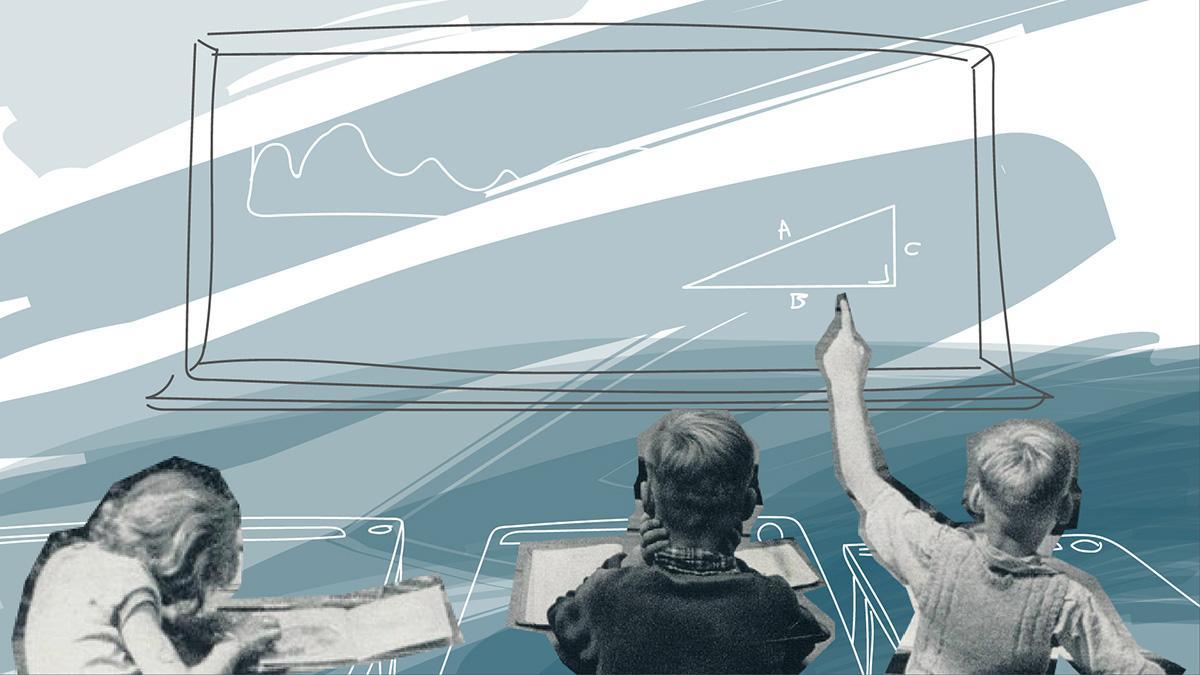
Flavia Cervelli
The Erasmus Programme is 30 years old and each year an increasing number of students decide to study at least one semester abroad. University systems and teaching methods still remain very different between countries, depending on cultural traditions and professors’ education. A new method is one of the many difficulties students face when following the Erasmus Programme, because you suddenly have to change your approach to classes and studies. As an Erasmus student myself, I decided to meet some colleagues who study different subjects in different countries and ask them about their experiences with the teaching methods of their professors at the University of Antwerp. Are they swayed by the new didactics or do they prefer those from home?
When I met Marion, a 21 year old French girl who studies in Strasbourg, the first thing she told me was Antwerp professors present lectures in a typical ‘frontal classes’ way, which is similar to her home university. She does believe her professors at UAntwerpen are closer to their students and always ready to explain something when students didn’t understand it during the lecture.
“Once, during the break, I was going to ‘Agora’ to get a coffee with a friend and the professor was going there too. We went together and she asked us if everything was clear and whether we wanted something to be explained again” she says. In Antwerp it’s possible to ask questions after class or during the break, and this wasn’t the only time she drank coffee with a professor. “Last semester I had a question about the last lecture and I asked the professor at the end of class. She invited me to grab a coffee together so she could explain it again.”
She is attending a Business School in France, where lectures are more practical than here. “Something I miss” she adds.
Iza is a 22 year old girl who studies International Relations in Poland. For her courses at UAntwerpen she gets permanent evaluation. That means a lot of participation in class, oral presentations, group projects, and weekly papers, which she is not used to. “It is a completely different way of teaching compared to my home university” she says. She too thinks professors are more friendly over here and believes she might have found the reason: “Because classes are seminars in small groups, professors are more involved and students are more active too.” She tells me about an interesting school trip to The Hague organized by her professor. “It was really exciting and that never happened to me in Poland” she says.
“Back home, we always discuss current affairs. Here we have a lot of discussions as well, but they are all related to the lectures.” Furthermore she finds that lectures here are plenty of theory, which isn’t bad as “you have a broader knowledge of arguments, you do not get stuck in the details.” She found it really helpful that professors provide students with some course readers with all the academic articles used in the lectures, so she didn’t have to search for all of them.
The third student I met is Edoardo. As a 23 year old law student from Bologna, he also appreciates the interactive approach of the lectures. “What I really like about the courses I am attending here is that you have the possibility to give your opinion in class and discuss a topic with others. I consider it really useful because it gives you the opportunity to understand the other’s point of view.” He notices professors are really interested in what students say and they constantly quiz them about what they think. He likes giving presentations and writing papers as it is a useful exercise for his future career. “Law students, who will probably become lawyers or judges, are supposed to be able to write legal acts. I never had the possibility to practice that. Teaching here is really more practical than the way I am used to in Italy.”
Katerina is a 23 year old who studies Biology in Greece. She explains that it is hard for her to compare teaching methods, because she is still doing her Bachelor's but is nevertheless attending master courses here. “In some courses it is easier to participate in class, because there aren’t that many students. All professors are really clear in explaining everything. It is also rather difficult for me to give presentations and write papers, but I believe it's normal to expect master students to do so”, she says. Her professors in Greece are really good, have great knowledge and are renowned researchers, but they tend to keep students at a distance. The professors she met here, on the other hand, are more friendly. They have been very helpful and they completely understood her difficult situation as an exchange bachelor's student.
Even though they all find that the teaching methods used at the University of Antwerp are usually different from the ones in their own universities, all exchange students I spoke were very enthusiastic about the courses they chose. Everyone considers their professors to be really friendly. What they appreciate most is the possibility to actively participate in class, express their point of view, or just ask questions. After all, isn’t learning from each other what Erasmus is all about?
- Log in to post comments